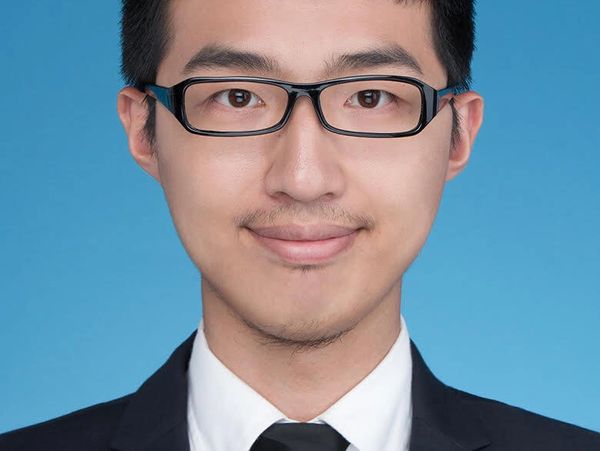About Us
.jpg/:/rs=w:600,h:600,cg:true,m/cr=w:600,h:600)
Principal Investigator: Kevin Wei, M.D., Ph.D.
Dr. Wei is an Assistant Professor of Medicine at Harvard Medical School and a rheumatologist at Brigham and Women’s Hospital. Dr. Wei’s research focuses on identifying novel cellular and molecular therapeutic targets in inflammatory diseases using single-cell technologies. He is a member of the NIH’s Accelerating Medicines Partnership (AMP-RA/SLE) consortium where he leads implementation of single cell technologies on RA joint tissues. He has received awards from the Rheumatology Research Foundation, Burroughs Welcome Fund, Harvard Catalyst, and BWH Department of Medicine. Dr. Wei is the co-Director of the BWH Center for Cell Profiling Single Cell Multiomics Core and associate Director of the Harvard Medical School/BWH Joint Biology Consortium Cellular Systems Core. He serves on the advisory board for STAR Protocols.
Dr. Wei received his Bachelor’s of Science in biology from Duke University and his medical as well as doctoral degrees from Stanford University School of Medicine. He completed his internal medicine residency followed by a rheumatology fellowship at Brigham and Women’s Hospital.

Kartik Bhamidipati, Ph.D.
As a predoctoral student supervised by Dr. William Robinson, my research focused on the characterization of immune cell dysregulation in autoimmune disease using high throughput technologies. In this setting, I developed experience in bioinformatic analysis of high dimensional data which I used to identify several candidate proteins involved in autoimmune pathogenesis and subsequently validated and tested via analysis of human samples and in vitro experiments. For my postdoctoral training, I will build on my previous experience in bioinformatic analysis and mechanistic in vitro studies to interrogate the role of vasculature in driving autoimmune pathogenesis.

Shideh Kazerounian, Ph.D.
Research Interests: I am interested in studying the genetic and molecular basis of the diseases with a focus on the involved signaling pathways
Vikram Khedgikar, Ph.D.
Research Interests: Vikram Khedgikar is working in the field of skeletal biology research from his PhD training. Most recently, he worked as postdoctoral fellow in Dr. Lehoczky’s lab understanding a novel Lgr6 expressing osteoprogenitor population of cells and the function of these cells in the maintenance of long bones. During his postdoctoral studies, he developed a strong interest in osteoarthritis and joined Dr.Wei’s lab which is well established in immunology, stromal cell biology, and rheumatology. Vikram is interested in studying the role of stromal cells in inflammatory and fibrotic diseases, especially in osteoarthritis.
Gao Ce, PhD
Gao Ce, or GC, is happy and excited to participate in a new type of “archaeology”, which is exploring single-cell transcriptome and spatial transcriptome information from paraffin-embedded tissue preserved for several years, so as to "dig out" novel biomedical mechanisms at a single cell level.

Kseniia Anufrieva, PhD
Kseniia's PhD research focused on cancer biology, specifically looking at how dying tumor cells contribute to chemoresistance in nearby cells. In her recent postdoctoral role, she explored the role of tumor stroma and its impact on chemotherapy resistance, investigating lasting changes in stromal components even after tumors were removed. During her postdoctoral studies, she became deeply interested in understanding the origin of disease-associated fibroblasts, and their role in disease development. Currently, her research centers on studying biological systems at the single-cell and spatial levels, with a focus on autoimmune disease pathogenesis and the involvement of fibroblasts in these conditions.
Tamara Salloum, Ph.D.
Tamara is interested in using the power of single-cell ‘omic’ technologies in understanding the mechanisms of human disease and identify new leads that may be targeted therapeutically. Tamara obtained her PhD at Newcastle University in studying host-parasite interplay using genomics and transcriptomics profiling. She then completed a postdoctoral training at Brigham and Women’s Hospital, Harvard Medical School, focused on understanding mast cell maturation trajectory under inflammation using single-cell sequencing. Tamara brings a combination of diverse wet lab experience and flexibility in large data analysis. Tamara is excited to join the team and ready for a new challenge!

Rochelle L. Castillo, MD, MS.
Dually trained in both rheumatology and dermatology, Rochelle is a physician-scientist with a particular interest in dermatomyositis and psoriatic arthritis whose goal is to utilize the skin as a window into internal organ involvement and a potential modifier of systemic autoimmune disease outcomes through integrative multi-omics analyses. At NYU, she underwent rheumatology fellowship training, obtained a master’s in Clinical Investigation with a focus on Translational Studies from the Clinical and Translational Science Institute, and completed a postdoctoral fellowship in skin inflammation and psoriatic disease under Dr. Shruti Naik and Dr. Jose Scher. She first arrived at the Brigham as a dermatology-rheumatology fellow under Dr. Ruth Ann Vleugels in 2023. She is a faculty member at Harvard Medical School and has clinical and research appointments in both the Department of Dermatology and the Division of Rheumatology, Inflammation, and Immunity. After enjoying many years in New York City, she is thrilled to be laying down roots in Boston and joining the Wei Lab

Qian Qin, Ph.D.
My research interests center on developing Bayesian machine learning methods for modern spatial transcriptomics technologies, such as Xenium, to address key biological questions in autoimmune disease. I am particularly interested in modeling spatial and temporal dynamics to predict disease outcomes and inform treatment strategies in clinical cohorts.

Wei Lab Alumni
Alex McIntyre, PhD (2024-2025). Current position: Assistant Professor, Linkoping University, Sweden
Miles Tran, B.A. (2022-2025). Current position: UCLA PhD program in Bioinformatics
Sonia Presti, B.S. (2021-2024). Current Position: Stanford Immunology PhD Program
Subhoshree Ghose, PhD (2022-2023). Current Position: Oxford Nanopore
Zhu Zhu, MSc. (2018-2022). Current Position: 10X Genomics
Yuhong Li , MSc. (2020-2021)
This website uses cookies.
We use cookies to analyze website traffic and optimize your website experience. By accepting our use of cookies, your data will be aggregated with all other user data.